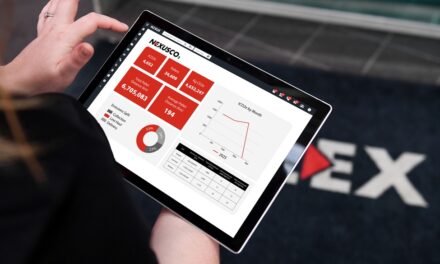
FedEx Loses Investors as Courts Upend Founder's Model
FedEx Corp. tells its ground-service drivers when to work, what to charge customers and what kind of socks and shoes to wear, the workers say. Drivers who sued the company argue that makes them employees.
Founder and Chief Executive Officer Fred Smith, who has served as co-chair of U.S. Republican presidential candidate John McCain's campaign, opposes changing their status from independent contractors to employees.
The trouble is the FedEx CEO isn't getting much support from shareholders. Calculating from five years ago, before its court losses on the drivers' claims, FedEx's total stock return was 25 percent, compared with 11 percent for United Parcel Service Inc.
Since a judge in Indiana certified a nationwide lawsuit Oct. 15 for drivers demanding FedEx federal pension benefits reserved for employees, total return for the company dropped 19 percent compared with a decline of 13 percent for UPS, the world's biggest package-delivery company.
FedEx, which has more planes in its delivery fleet than UPS, has had to pay higher prices for jet fuel in the last 18 months. Amid a slowing economy, some customers have switched from premium services such as FedEx's to cheaper delivery methods, Smith has said.
Rulings Awaited
The FedEx CEO now awaits rulings by U.S. District Judge Robert Miller in South Bend, Indiana, on whether the drivers are employees. If they are, they'll seek USD 1 billion in damages.
At stake is a business model that provides FedEx Ground a cost advantage over UPS that may be more than 30 percent. That's the estimated savings enjoyed by businesses that use contractors rather than employees, according to Marick Masters, a business professor at the University of Pittsburgh.
“The case does not look good for FedEx,'' said Michael Harper, a Boston University law professor who is writing the chapter on the definition of “employee'' for the “Restatement of Employment Law,'' a reference work to be published by the American Law Institute. “FedEx's legal position is much less appealing because these drivers are at the core of their business.''
In March, the same Indiana judge ruled that workers in 20 states could sue as 20 individual groups to win employee status. Because those class actions and a nationwide suit involve so many drivers, anticipated rulings by the Indiana judge on whether the workers are misclassified pose the biggest threat to date to Smith's vision.
Tax Case
The dispute also has opened FedEx up to a series of related legal responsibilities, including a potential pretax liability from unpaid payroll taxes of as much as USD 2.5 billion. It may force the second-largest U.S. package-delivery company to either overhaul its contractor model or throw it out entirely.
FedEx, with USD 1.1 billion in net income in fiscal 2008, declined to say whether it had set aside reserves to cover the possible USD 1 billion in damages or the potential USD 2.5 billion tax liability. Spokesman Maury Lane said FedEx follows generally accepted accounting principles in disclosing reserves.
The bigger problem for the package service may be how to overhaul the business model to make it compliant.
Shift to Contractors
Treating workers as contractors rather than employees has been gaining popularity among U.S. employers with the number in the workforce rising 25 percent to about 10.3 million from 1999 to 2005, according to the U.S. Government Accountability Office. The reason for the increase is the cost differential according to Masters, the business professor.
A Teamsters Union financial model predicts FedEx costs would go up USD 426 million a year if the company compensated the drivers as it does present employees. The model assumes FedEx would pay Social Security and Medicare taxes, unemployment and worker- compensation insurance, vacations, health insurance and 15 hours a week of overtime.
FedEx's Lane declined to comment on the Teamsters' model or Masters's 30 percent savings estimate, except to call both “speculative.'' He declined to say how much FedEx saves by using contractors.
FedEx describes the drivers as small-business owners who invest in their trucks and are free to hire helpers or substitutes.
FedEx's Stance
The company claims it doesn't prescribe the drivers' work methods or their days or hours of work, allowing them to pick up and deliver packages on their own schedules. Drivers are paid by the job, FedEx says.
Smith, an entrepreneur even before his FedEx days, worked with two high school friends to start Ardent Studios, a Memphis, Tennessee, company known for recording songs by B.B. King, R.E.M. and ZZ Top. The FedEx chief left the business when he went off to college at Yale University.
Smith was suggested in press reports as a potential running mate for McCain — a possibility that the FedEx CEO rejected. Campaign spokesman Brian Rogers said the candidate had no comment on the litigation, which could help define what it means to be a full-time employee.
New Model
Before converting the drivers to payroll workers, said Pat Becker Jr., Becker Capital Management Inc. chief investment officer, Smith would revise the model, probably moving toward multiroute drivers as he had when FedEx lost a similar class action in California demanding employee status.
A California appeals court refused in August 2007 to overturn a USD 5.3 million verdict that the company misclassified the workers. “If it looks like a duck, walks like a duck, swims like a duck and quacks like a duck, it is a duck,'' the appeals court said. The California Supreme Court refused to hear the case in November.
In response to the losses in California, the company launched a campaign to convert single-route drivers to multiroute. FedEx said it would like to encourage drivers to move in that direction. Multiroute forces a small-business owner to have more capital to invest since drivers must be employed and trucks bought and maintained.
Shifting to multiroute may not provide legal sanctuary. Employees of multiroute contractors are suing FedEx in Washington State arguing they too should be eligible for overtime pay.
Union Organizing
Making the contractors employees also increases the risk of union organizing. The Teamsters have created Project FedEx to help the drivers get reclassified with the goal of pushing for union membership.
The company has “a cost advantage in being nonunion,'' investor Becker said. “That would be a fundamental change in their business, and we would have to re-evaluate'' his firm's stock position. He manages $2 billion and owned about 250,000 FedEx shares June 30.
Shares of FedEx have been moving up after slipping to a low for the last 12 months on July 15 of USD 73.01. The shares today fell 73 cents to USD 82.18 in New York Stock Exchange composite trading.
The Indiana suits aren't the only challenges to FedEx's system. The National Labor Relations Board also found FedEx had misclassified some drivers in rulings in 2004, 2005 and 2006. FedEx is appealing one of those the NLRB decisions in federal court in Washington.
Government Reaction
Reibstein, an employment attorney hired by companies, said the increasing use of independent contractors by employers is exposing many U.S. businesses to liability. Federal and state tax authorities are tightening enforcement of independent-contractor rules, he said.
FedEx is also contesting an initial assessment in December by the U.S. Internal Revenue Service that the company owes USD 319 million in payroll taxes, fines and interest for 2002 on their drivers, who the IRS says qualify as employees.
The pretax liability may equal USD 2.5 billion, or the equivalent of USD 5 per share, when the IRS finishes evaluating three additional years being audited, according to Jon Langenfeld, an analyst at Robert W. Baird & Co., in a January report. This is what Langenfeld called a worst-case scenario since companies and the IRS usually settle at lower levels. He rates the company “neutral.''
Prior IRS Case
The company argues that a 1994 settlement between the IRS and a company that FedEx later bought classified the drivers as independent contractors and supports its business model.
UPS, with 92,000 union drivers, has tried to play a role in the controversy. In 2006, a UPS tax lawyer and lobbyist sent a 562-page report on FedEx employment practices to officials in Ohio, one of about 30 states looking into the company's use of contractors.
UPS spokesman Norman Black refused to comment on the UPS lobbyist's activities. He did say that the company has long held the position that FedEx misclassifies its ground workers purposefully “and in this process gains an unfair advantage over its competitors who pay their employees as employees.''
The Indiana case is In re FedEx Ground Package System Inc. Employment Practices Litigation, 3:05-md-00527, U.S. District Court, Northern District of Indiana (South Bend).












